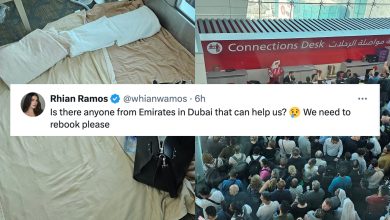ABU DHABI: Overseas Filipino workers (OFWs) arriving in the UAE will be assured of greater protection in the light of new labor recruitment rules coming into force this month, Philippines’ vice-president Jejomar Binay said after meeting Saqr Ghobash, the Minister of Labor.
Labor reforms are designed to benefit the employer and employee through three decrees to ensure transparency and compliance in labor contracts, including terms of termination, reported The National.
“The Minister and I spoke about the problems facing our Filipino workers, particularly those victimised by illegal recruiters here and back home. Many who take in jobs in the UAE go through another country, such as Malaysia and Singapore, where their job contracts are signed,” said Binay, who is on four-day visit to the UAE, told members of the Bayanihan UAE, which represents 57 Filipino community groups in Abu Dhabi and Al Ain.
Binay was referring to third-country recruitment, which is considered illegal as the recruiter or employer have no licence or authority from the Philippine overseas employment administration (Poea) in Manila, the report said.
“If we put an end to illegal recruitment, we’ll have fewer Filipinos complaining about substandard or inferior contracts, non-payment of wages and other work-related problems here in the UAE,” he was quoted as saying.
Ophelia Almenario, the labor attaché at the Philippine overseas labor office in Abu Dhabi, reportedly said there was a discussion on the three new labor rules: ministry-approved contracts, conditions for terminating employees and labor permits to work for new employers.
“We welcome all these new reforms that ensure transparency and afford greater employee mobility,” she added.
Under the new policies, prospective foreign workers would be asked to sign a standard employment offer in their home country, which would be filed with the Ministry of Labor before a work permit was issued, said the Abu Dhabi-based news portal.
That agreement would then be registered as a legal contract once the worker arrived in the UAE, and no changes would be allowed unless they were additional benefits that the worker agreed to, it said.
“At the meeting, the top labor ministry officials also provided us with a status update on our agreement related to the recruitment and employment of all types of Filipino workers,” Almenario reportedly said.
Reportedly, the deal will amend an old agreement signed in Manila on April 9, 2007, by the labor minister at the time, Dr Ali Al Kaabi, and Arturo Brion, who was the Philippines labor secretary.
“Some provisions of this agreement are still being refined, and we were told that the ball is now in our court,” Almenario said.
This agreement does not cover household staff such as maids, nannies, gardeners, cooks or family drivers, as they fall under the responsibility of the Ministry of Interior.
“As for the re-deployment of domestic workers to the UAE, we expect another round of talks to take place with the UAE labor ministry officials within the first quarter of this year,” Almario reportedly said.
In June 2014, the Ministry of Interior introduced a unified contract for domestic workers that led to the suspension of the Philippines’ role in verifying and attesting contracts, reported The National.





